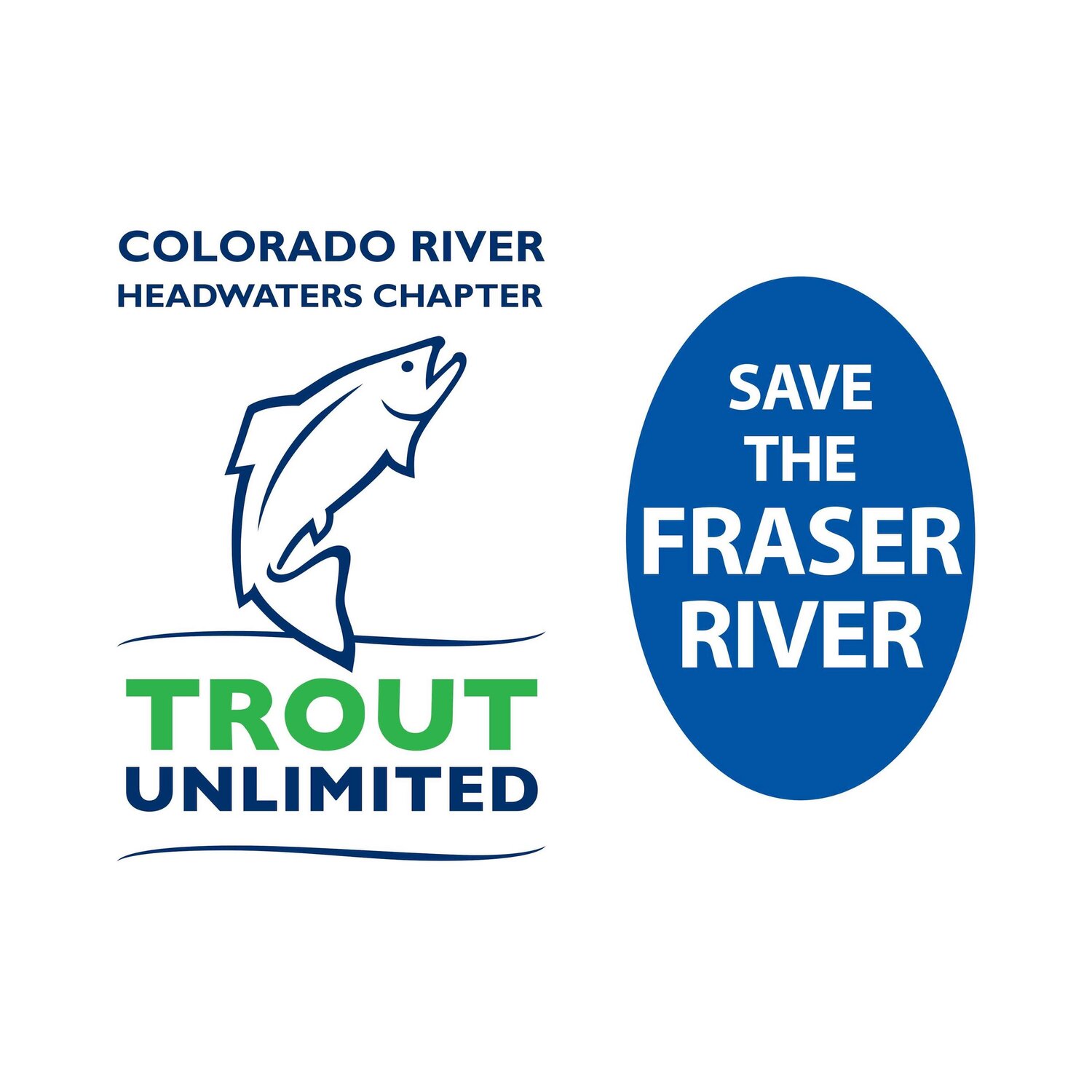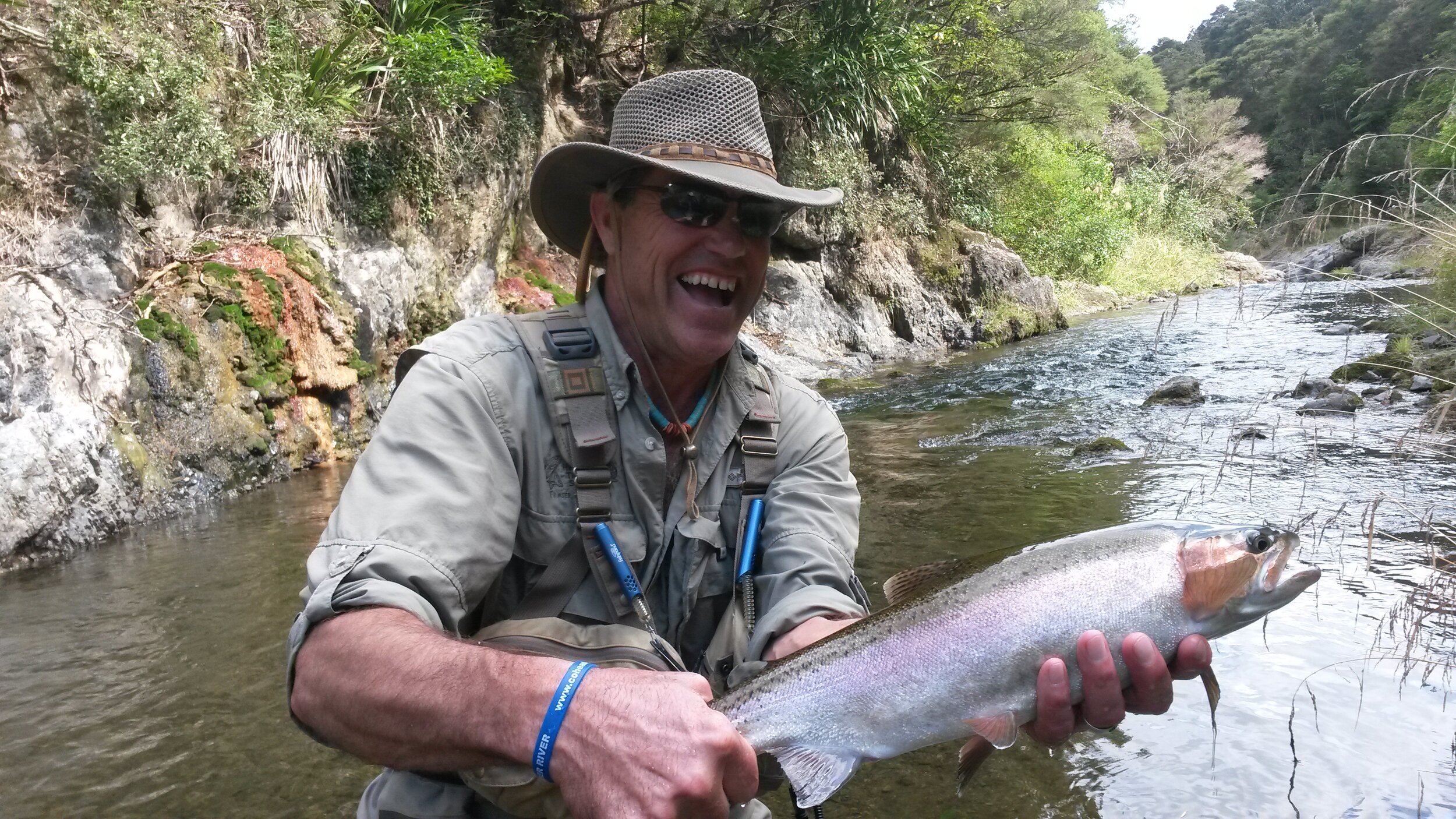Our Trout Unlimited Chapter’s relationship with Denver Water and other diverters has evolved considerably over time. Not that long ago, we fought bitterly in court with diverters. Ultimately, we came to recognize that the diverters had both the well-established legal right to the water as well as the political clout and deep pockets to foil any attempted litigation on our part. We reluctantly acknowledged that legal battles with the diverters were doomed to failure.
We recognized that the only way to protect our rivers was to educate, communicate and (when appropriate) cooperate with the diverters. Our strategy of working with the diverters, while continuing to apply pressure on them to do the right things has resulted in many, many successes. Read Kirk’s letter for more insights.
STRANGE BEDFELLOWS
Grand County’s rivers and streams have been negatively impacted by several human caused problems. Local problems have been caused from ranchers allowing cattle to wander through our streams and municipalities allowing streets to drain directly into them. However, the largest impact that our rivers see is from trans-basin diversions.
Trans-basin diversions happen when water from one river basin is diverted out of that river basin. An example of this is West Slope water headed to the Pacific ocean ends up being diverted to the East Slope and ends up in the Atlantic ocean. The negative environmental impact from this is the loss of return flows. When ranchers in Grand County diverts water from the river into their irrigation ditches, most of that water returns to the river after irrigating their crops. When the Front Range diverts water from a West Slope river none of that water returns to the river. The reduction in stream flows results in sediment deposition and higher stream temperatures.
More than one half of our local rivers are diverted to the Front Range. The remaining water spreads out over the native channel. This results in a wide, shallow stream that struggles to move sediment and heats up quickly. The sediment fills in the voids and smothers the bugs which the trout need to eat to survive and the higher temperatures can be lethal to trout.
Denver Water is one of the largest Front Range diverters of water from Grand County so by default have one of the largest negative impacts on our local rivers. The legal right to divert so much water was given to them in 1876 when Colorado wrote our existing water laws into the State Constitution. These laws guarantee personal property rights to Colorado citizens and are virtually impossible to change.
Some in Grand County have questioned why Trout Unlimited and Grand County Government are working with Denver Water to improve the health of our local rivers. This complicated partnership has evolved through years of negotiations.
In 2003 Grand County and Trout Unlimited were anything but cordial in their relationship with Denver Water. Almost a full decade later, using science to guide the conversation, Denver Water has signed an agreement with the West Slope to be one of the partners in looking after the stream health in Grand County.
As a partner they have helped fund and supervise stream improvement projects, participated in an adaptive management group called Learning By Doing and curbed the diversion of water that they legally own to help cool stream temperatures that are lethal to trout and our trout fishing industry here in Grand County.
2021 started out rough with stream temperatures reaching over 70 degrees F in early June on the Colorado River. The Grand County Drought Response Committee had already declared Grand County in severe drought and Colorado Parks and Wildlife had called for a voluntary fishing closure on the Colorado River below Kremmling. Many guides that I know personally were looking at unemployment. As partners in Learning By Doing, Denver Water and Northern Water were asked to stop diverting water that they owned to help relieve the temperature problem. Between June 7th and June 30th Denver Water released 11,348 acre feet of water, along with Northern Water’s decreased diversions, to cool the troubled Colorado and keep our local fishing economy intact. Again in August, stream temperatures in the upper Fraser River basin were getting too hot to sustain a trout fishery and again Denver Water released 420 acre feet of water between August 2nd and August 19th.
Giving up water that Denver Water legally owns and has a monetary value that far exceeds their other contributions to the health of our local rivers and streams is pretty convincing evidence that partnering with them accomplishes far more than fighting with them over what they already legally own. 2021 was not an exception to the rule as they have released water for the health of our rivers in previous summers.
I am a firm believer that conservation starts with communication which leads to collaboration. What Grand County Government and Trout Unlimited along with other West Slope organizations have accomplished by working with Denver water instead of against them is a precedent that other conservation organizations should follow to increase their chances for success.
Kirk Klancke, President, Colorado River Headwaters Chapter of Trout UnlimitedJerry Nissen, Board member and webmaster / coheadwaters.org

